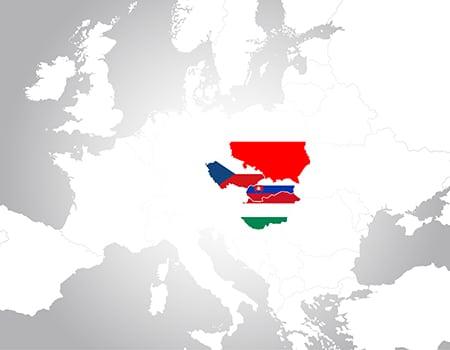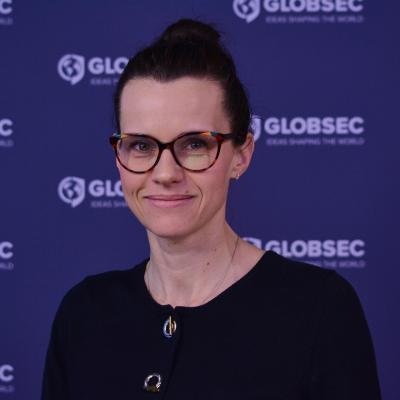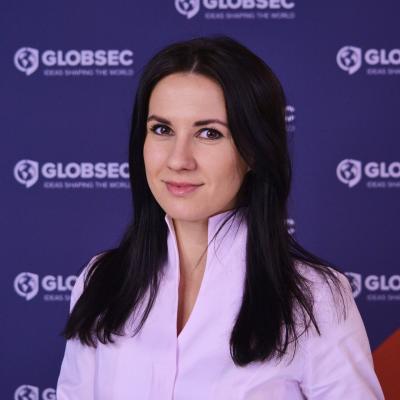Poland at the Helm: the Visegrad Group on the Eve of Its Thirtieth Anniversary

The Polish presidency can and should use this opportunity to change the image of the V4 and overcome the rather negative perception of the region inside the EU.
On 1 July, Poland officially assumed the annual presidency in the Visegrad Group (V4) under the motto of “back on track”. Warsaw will try to use this presidency to coordinate V4 countries’ stances within the European Union (EU) at the times when the key decisions about the future of the European project will be made.
In particular, these decisions concern the post-COVID-19 recovery instrument (and common debt) and the Multiannual Financial Framework (MFF) for 2021-2027. Decisions and programmes of the presidency will be based on three main pillars: economy and connectivity, security and recovery, and society.
Besides the coordination of V4 stances within the EU, the other objectives set by Warsaw for the next year include infrastructure development, deepening cooperation in security areas, and in the international agenda (for example, supporting the Western Balkan countries EU aspirations, and safeguarding the Eastern Partnership).
Finally, a special focus will be placed on cooperation in digital affairs and technological innovation, development of digital infrastructure, including safe 5G and data management systems.
Convergence of interests
The V4 forum has helped to consolidate the states’ positions regarding the key issues on the EU agenda. The V4 has been especially vocal on the EU migration policy: all four countries have a firm stance against a policy of compulsory relocations, and they wish to keep the decision to grant asylum as part of the competence of the member states.
Another area where the V4 interests converge and where the group has been successful in shaping EU stance is the neighbourhood policy towards its immediate Eastern and South-Eastern European neighbours, namely the Eastern Partnership and the Western Balkan countries.
At the same time, a divergence between their stances on several crucial issues is also noticeable, and the current situation within the group is not as monolithic as it might be seen from other European capitals.
This includes the EU Recovery Fund proposal, the Common Foreign and Security Policy (e.g. policy towards Russia or Israel), climate policy and the rule of law.
As a result, to pursue the interests that are different than those of V4 neighbours, the countries diversify their engagements and do not necessarily see V4 as the primary platform to achieve their goals.
Yet, it is worth underlining that the V4 format has always been intended to promote shared interests between the countries while allowing for space to pursue diverging ones through other channels.
Make Europe strong again
The motto of the Polish presidency “back on track” underscores the theme that is similar to the motto of the German presidency of the EU Council, the start of which happens at the same time.
Interestingly, the English version of the German presidency motto “Together for Europe’s recovery” is a milder interpretation of a somehow stronger German phrasing “Gemeinsam. Europa wieder stark machen.” (which literally means “Together. Make Europe strong again”).
While there might be some coordination between Warsaw and Berlin on their objectives in their respective presidencies, some of the perspectives of the European partners that Germany will need to heed will not be in line with Polish perspectives.
Most prominently, the strengthening of the rule of law, which foresees the introduction of the conditionality in the EU funds, will definitely continue to be the subject of heated discussions with Poland and Hungary.
What is more, while in overall therms the V4 believe the EU strength comes from the cooperation of sovereign countries supported by common institutions, the German position is evolving towards a more sovereign Union.
There are plenty of shared priorities in the region. In the aftermath of health, political and economic crises, the best way to pursue them might be through a proactive, constructive input into the European debate.
The Polish presidency can and should use this opportunity to change the image of the V4 and overcome the rather negative perception of the region inside the EU.
Therefore, the presidency should work on a constructive agenda which benefits not only the region but the EU as a whole. And the objective of a “strong V4 in a strong Europe” sounds like a good recipe for a successful presidency and the group’s thirtieth anniversary!
The article was originally published on the Visegrad Insight website on 8 July 2020


Associate Fellow, Centre for Global Europe
Former Research Fellow and European Neighbourhood Programme Manager